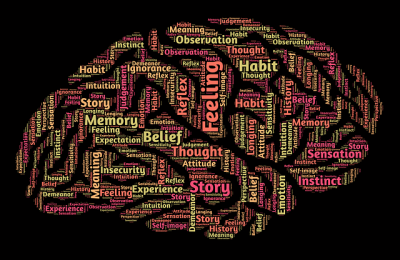Rather than explain what cognitive bias is, I’ll jump right in and give you an example. You’re smart, you’ll figure it out. In this article I’m going to tell you about my favourite cognitive bias (like that’s a thing), it’s called the Dunning-Kruger effect. It’s my favourite because it really is quite funny when you think about it. If you haven’t heard of it before, it might be a little mortifying to think that you do this, but then you remember we all do it and you can see the funny side, anyway, let me explain.
It turns out, we are all quite bad at assessing our own performance. For example, when asked to play the game Boggle (a word game in which you make as many words as you can using a 4×4 letter grid) for 3 minutes people were asked how many possible words they thought they had missed. On average they guessed 18 – they had actually missed 154! So they very much overestimated their performance and underestimated the unknown element, that is how many possible words they had missed. From this example it’s not a huge leap to imagine that we probably share in this tendency or ‘cognitive bias’ ourselves, and so we too probably underestimate what we don’t know and hence overestimate our own performance. As I was reading about this study, I got to the bit about Boggle, and before reading on, I went ahead a played a couple of rounds of Boggle myself (you can play it online here). I then asked myself the same question they asked in the study “how many possible words do you think you missed?” My answer, about 25. So I certainly fall into the same trap as the participants in the study. Now here’s the really mortifying / funny bit, the worse the performance, the better you think you did. I know, I know.
In another example, students were asked to estimate their performance in an exam. Students were divided into quartiles depending on their score and then asked how well they thought they had done. In every quartile, from the bottom 25% to the top 25% people thought they had scored above average. To be clear, EVERYONE in the group thought they had scored above average, which is of course impossible! Half of them were correct, they had scored above average, but the bottom half thought they were in the top half. The worse the person scored, the more inaccurate they were at estimating their score – the more they inflated it. Those at the bottom made an overestimation of 45 percentile points!
A further example of the Dunning-Kruger Effect can be found in the workplace, where several hundred engineers from two different companies were asked to rate their skills. In one company 32% and in the other, 42% thought their skills put them in the top 5% in their company. Now I don’t need to tell you, that 42% of people cannot be in the top 5%, and so a few of them are correct and 37% of them have really over estimated themselves.
The same effect has been found using measures of grammar, tests of logic, debating performance, chess ability, driving test performance and even when measuring emotional intelligence. The same pattern emerges each time, it’s the people at the bottom that are vastly overestimating their performance. So now, the obvious question, how do I know if I’m in the top, accurately understating my own brilliance, or at the bottom inflating it like an energy supplier? Well the key to figuring this out might lie in the knowledge of where you are in the population. In the exam example, Dunning and Kruger found that people knew they had performed worse than the top performers, they just didn’t
realise by how much. So if you know there are people who have more skill or knowledge than you in a particular area, then you might have a fair bit to learn, and it might be more than you think. So listen up, learn as much as you can from others, always aim to know more than you did before and do better tomorrow than yesterday. Finally, don’t compare, it wont help you. Your ego will trick you.
As I’m writing this, I am wondering about people with particularly low self-esteem, who already have the habit of under estimating their skills and abilities most of the time. Maybe the Dunning-Kruger Effect isn’t helpful to you. Have a quick think now, do you often rate yourself as below average in a given area? If yes, then you probably aren’t suffering from this particular cognitive bias. But otherwise, simply accept that in one area or another, you maybe suffering from the Dunning-Kruger and it may benefit you to remind yourself of it from time to time. It’s ok to be in the bottom half, set goals, make progress and learn from those around you whenever possible.


